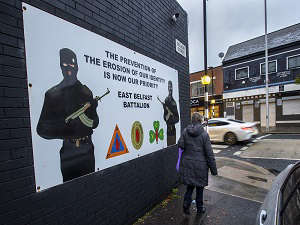
By Q Radio News
A long-delayed report on flags and culture has been published this afternoon by the Executive Office.
However, the report, which cost approximately £800,000, has already been criticised because it will not be accompanied by a plan for implementing its 44 recommendations
The recommendations include:
1 The Department of Agriculture, Environment and Rural Affairs make wood used to build eleventh night bonfires "exempt from being classified as controlled waste".
"This would enable such bonfires to occur lawfully on public land when they are undertaken as part of a cultural event and where landowners permit them to occur.
"As the proposed change in legislation would enable land owners to permit a bonfire on their land for such an occasion, land owners would be in a position to set the conditions upon which such permission is granted, thereby ensuring that the bonfire is safe".
2 The dumping of tyres, rubbish and fly-tipping at bonfire sites should be "robustly" pursued under the leadership of the Environment Agency, landowners and relevant statutory organisations.
3 The Executive reviews existing legislation and, if necessary, "introduces new legislation to empower public sector bodies to take action to remove murals, on public and private buildings, or prevent them being painted where they contravene a set of guidelines".
4 The creation of a civic accredited arts and heritage, education, training and exhibition initiative in a dedicated space.
5 Broadcasters and media organisations "provide cultural awareness training for their employees".
The commission also discussed the possibility of developing a civic flag.
"This would not be a regional flag or a national flag, but rather a civic flag that would be designed to be representative of the diversity of our society, including our new communities," the report said.
"Such a civic flag would therefore incorporate representations of Britishness, Irishness and our collective diversity."
The commission could not reach consensus on a number of issues, including a mechanism for the regulation and enforcement of the flying of paramilitary flags.
However, it did agree that flags supporting paramilitary organisations should not be flown.
In its report the commission said it hoped the recommendations could aid in a process where issues of flags, identity, culture and tradition "are no longer contested and contentious, but become a means by which we foster, develop and embed respect, a key outcome in the Programme for Government".
The Commission on Flags, Identity, Culture and Tradition (FICT) was established in June 2016 and included members from the DUP, Sinn Féin, Alliance, SDLP and UUP, and eight independent members appointed by public competition.
Its findings were presented to the Executive in summer 2020 but only made public this afternoon.
The commission held meetings with a range of groups and individuals across Northern Ireland, including young people.
"The commission hopes that the next generation of civic and community leaders will operate in an environment that is less contentious, and one in which young people can carve out the future that they wish for themselves," the report says.
"The commission also hopes that this creates the environment where young people can equally feel confident and secure in their own traditional cultural identity and heritage."
First Minister Paul Givan and Deputy First Minister Michelle O’Neill welcomed publication and urged the public to read the report and respond.
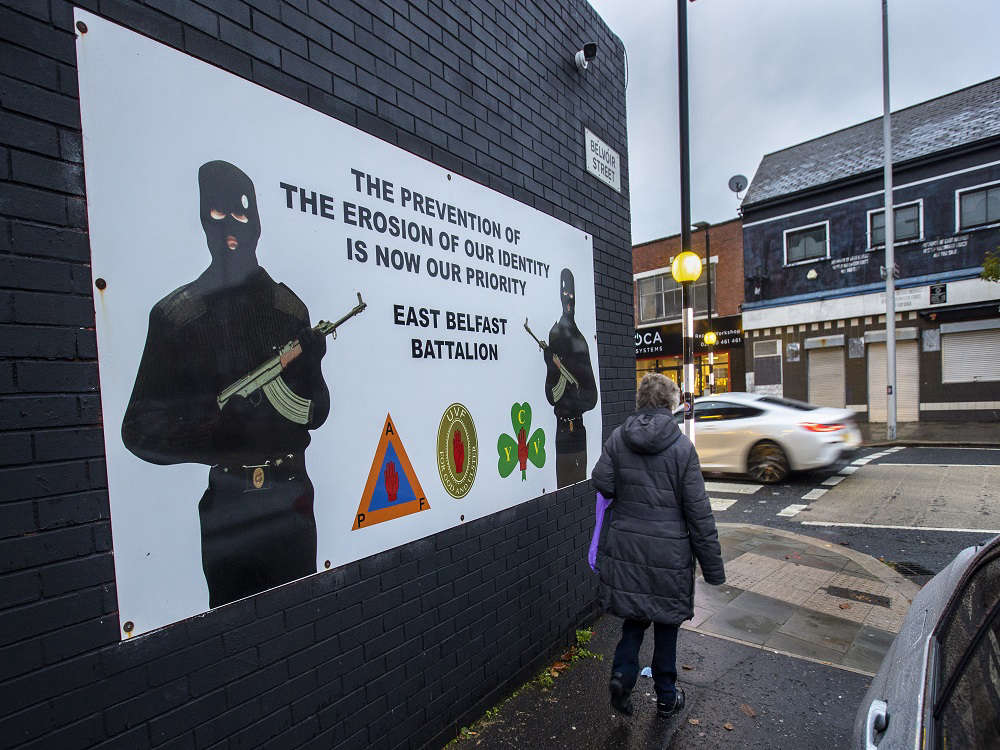
(A banner supporting the UVF East Belfast battalion)


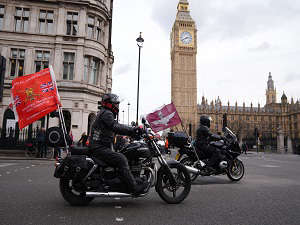 Bikers to descend on Westminster for veterans protest against Legacy Act repeal
Bikers to descend on Westminster for veterans protest against Legacy Act repeal
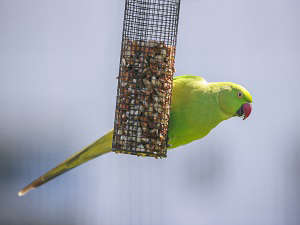 Guidance sought over future of colourful parakeets in Belfast park
Guidance sought over future of colourful parakeets in Belfast park
 Woman released after questioning over pipe bombs in Co Down
Woman released after questioning over pipe bombs in Co Down
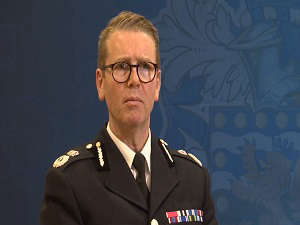 Suspended chief constable will not be prosecuted over alleged sexual offences
Suspended chief constable will not be prosecuted over alleged sexual offences
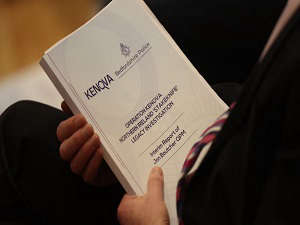 MI5 files not deliberately withheld from Stakeknife probe, review concludes
MI5 files not deliberately withheld from Stakeknife probe, review concludes